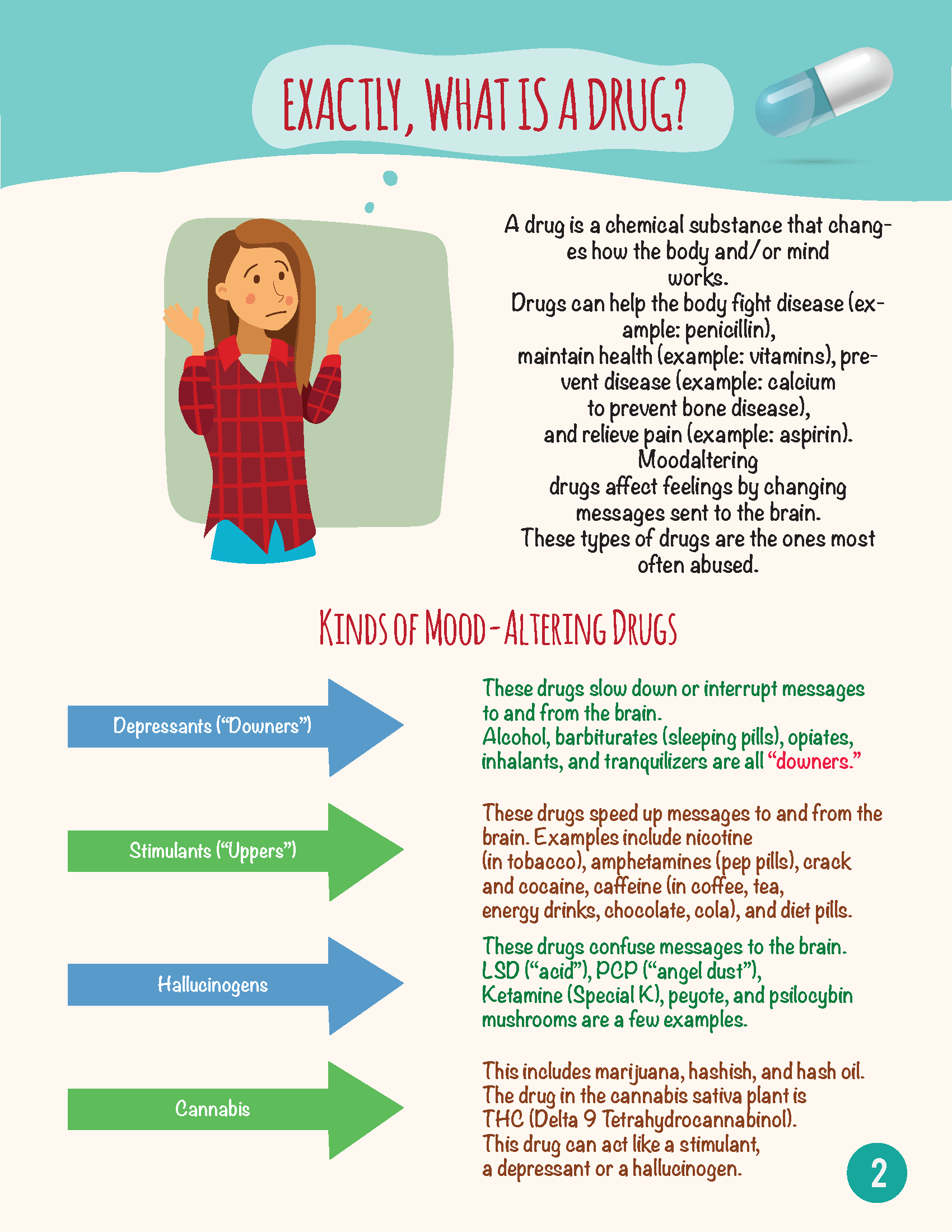
EXACTLY, WHAT IS A DRUG?
A drug is a chemical substance that changes how the body and/or mind works.
Drugs can help the body fight disease (example: penicillin), maintain health (example: calcium to prevent bone disease), and relieve pain (example: aspirin).
Mood altering drugs affect feelings by changing messages sent to the brain. These types of drugs are the ones most often abused.
KINDS OF MOOD-ALTERING DRUGS
Depressants- ("Downers") These drugs slow down or interrupt messages to and from the brain. Alcohol, barbiturates (sleeping pills), opiates, inhalants, and tranquilizers are all "downers."
Stimulants- ("Uppers") These drugs speed up messages to and from the brain. Examples include nicotine (in tobacco) amphetamines (pep pills) crack and cocaine, caffeine (in coffee, tea and energy drinks, chocolate, cola) and diet pills.
Hallucinogens- These drugs confuse messages to the brain. LSD ("acid"), PCP ("angel dust"), Ketamine (Special K), peyote, and psilocybin mushrooms are a few examples.
Cannabis- This includes marijuana, hashish, and hash oil. The drug in the cannabis sativa plant is THC (Delta 9 Tetrahydrocannabinol). This drug can act like a stimulant, a depressant or a hallucinogen.